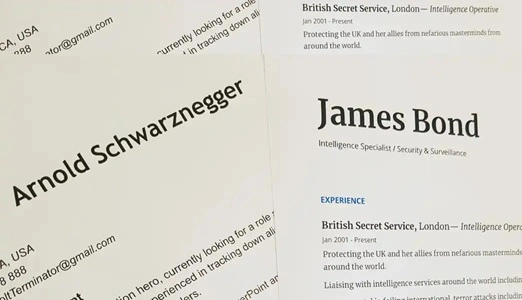Not always, but yes, lying on your resume may be counted as fraud in some serious cases, and you can face actual legal consequences for that. But usually, people just get away with it because the lie isn’t that serious, in case it is serious, be ready to face some legal consequences if someone cross-verifies your details.
Is It Actually Illegal to Lie on a Resume?

There is one area that gets a bit tricky. Legally, we would argue that a resume is not a legal document. At the moment you sign a job application, background form, and employment agreement with acknowledgment that the details you have given are true, it becomes serious. It is at that moment when lying on your resume might place you in legal trouble. Like, instances where lying is architected as having your resume claims include being fraudulent about a major license: lying about having a medical license or a legal license. And yes, that right there is actually a criminal offense.
Real Legal Risks: What Could Actually Happen?
With the things you do lie about and what state you are in-you certainly could suffer more than just rejection. Like:
- Texas outlaws the use of fake degrees for employment.
- New Jersey can impose heavy fines and jail time for it.
- In California, engagement dissolution is unlawfully enacted by the inconsistencies placed on a resume.
Such a statement takes breaches and lawsuits one step further if you have signed any document that says your information is true. If by any chance those lies have caused some harm to a company or its clients, they are forced to knock on the courts’ doors and you can very well get in legal trouble.
Yes, People Have Been Jailed for This
Most people, in such a case, don’t serve any time just for adding a few lies to their resume. But the bigger the lie, like being a so-called and unlicensed “doctor,” “lawyer,” or “engineer,” the bigger the criminal charge. Of late, some people have even gotten served a jail term for such lying. One guy threw in a longer lie: presenting himself as a doctor. Twenty months was the sentencing, which means there are actual, harsh, and serious consequences for such a thing.
Your Reputation Can Take a Hit Too
Spreading a lie, even about small matters, can forever ruin one’s professional reputation. The employer could terminate you, or may not: they may just choose not to trust you ever again, and so that path for growth may close up for you right then and there. On matters big and small–news spreads fast in a small industry. A damaged reputation can stick to your next job because, to some extent, employers communicate feedback or conduct background checks.
How Employers Catch Resume Lies
Companies really have a much greater interest in your resume. They verify whether your job titles are true; they sometimes contact the school, background-check the person, or even contact references. If something does not smell right to the interviewer, the offer will be withdrawn, or termination will take place. And once marked as a dishonest person, it becomes a very hard mark to erase.